7 Ways You Can Leverage Sales Intelligence to Boost Sales Engagement [With Examples]
![7 Ways You Can Leverage Sales Intelligence to Boost Sales Engagement [With Examples]](https://webimages.zixflow.com/653a1e63966947373afc7fc8_Leverage_20_Sales_20_Intelligence_20to_20_Boost_20_Sales_20_bd730bb946.png)
Think of every interaction that you have ever had with a salesperson. Can you think of any interaction where the salesperson did not ask you a ton of questions? I am certain you cannot; rather, you would be able to give me several examples where a salesperson must have bothered you instead with too many questions. Not to blame them; it is their job and also a necessity.
All the questions that you get asked by salespeople are an attempt to know you better, to know your needs better, and to know what you are looking for so that they can sell you the best possible product. This information collected by the salespeople is known as sales intelligence. Any piece of information that assists a business to make sales easier is known as sales intelligence. For instance, if you have approached a sales team to buy a chatbot, then knowing your name and the company you work at will help the salesperson in presenting an ideal solution. And, of course, one step easier to sell since they will be able to customize their pitch as per your business needs.
Sales intelligence is not a tool from recent times, it has been around for a long time, and even your nearest grocery store salesperson uses it to upsell and cross-sell to you. If you are looking for a croissant, they would suggest you add cream to it to enhance its taste. Or if they know you a little better and know about your family members as well, then he/she might suggest you buy a pack of it instead of an individual piece. Sales intelligence is a tool that has been leveraged for a long time in both B2B and B2C markets to enhance sales engagement; however, not everyone does it right, and I am here to help you out with the same.
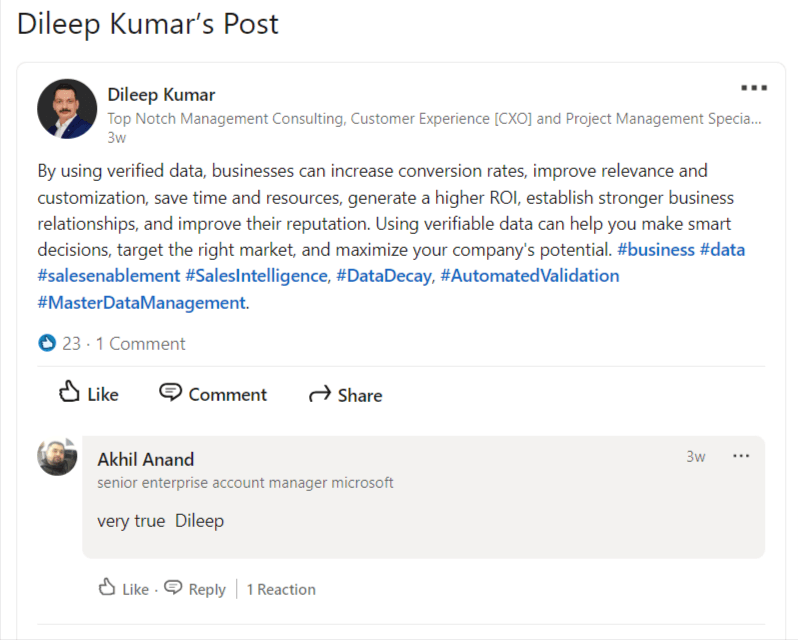
What is sales intelligence?
As aforementioned, sales intelligence provides valuable insights about your prospects, customers, and market trends. Gathering the information is the first step, followed by analyzing and applying relevant data to help you identify new opportunities and improve sales engagements. With these actionable insights derived from sales intelligence, your sales team can tailor their strategies and messaging to resonate with potential customers like never before.
How does sales intelligence help your business as a whole?
In this technologically advanced world, everyone can access great sales tools, but not everyone can utilize their potential to the fullest unless they know their customer. Each one of your competitors has access to the same technology, the same tools, an exemplary sales team, and a great marketing team. The only thing that can help you outsmart your competitors is sales intelligence. The more you know your customer, the better!
Data Accuracy
Through sales intelligence, you can get fresh data and insights on your customers. Which sales activity is impacting your conversions? Through which channel is growing your pipeline the most? What sales pipeline best practices can you implement? Also, the sales forecasting results get even closer to reality with these data insights making it easier for you to take your business in the right direction.
Get quality leads
37% of marketers say that generating high-quality leads is the biggest challenge they face. This is because of several reasons, among which is not knowing the ideal customer profile or not having information about who might be interested in your product. Sales intelligence helps you figure that out, and helps you scale your pipeline with quality leads and build your pipeline stages in congruence with your leads' requirements.
Smaller sales cycle
When the ideal customer profile is clear, and your sales team knows who genuinely has the intention to buy your product, they can save their time on fluff leads and focus on closing the interested ones. This way, there would be less time between the initial contact and final conversion, also giving you desired results for your sales cadence efforts.
Improved productivity
Sales intelligence gives your sales reps access to sorted, highly accurate, and immaculate data. When this data is laid out to your sales rep, they have the right direction to work in, thus helping them in increasing their productivity.
How to use sales intelligence for sales engagement?
Evidently, sales intelligence is the key to cracking the market, but so is sales engagement. So an amalgamation of both will give incredible results and who wouldn't want? So I am giving you the ways here through which you can use sales intelligence to increase sales engagement manifolds.
Find the right market
Sales intelligence enables you to tap into your TAM [Total Addressable Market]. It refers to the potential revenue your business can generate in the marketplace annually.
Now why is TAM important?
Knowing your market helps in removing the ambiguity of who to approach and whom not to. With your sales intelligence data, you can analyze your current customer base and figure out your right audience. When your sales rep is aware of who to sell to, they would be able to sell with confidence and eventually sell more as well.
Not only that, but knowing your TAM also helps you in making judicious budget decisions, helps you in forecasting growth, and helps you in segmenting your audience. When you have all of it at hand, it becomes way easier to engage your prospects using content and other tactics since your marketing and sales strategy will revolve around your Total Addressable Market and catering to your ideal prospects' needs.
Real-time insights through intent data
Consider this, you visit a website, scroll through its products page, explore its testimonials page, engage with its lead bot, and leave the website since you decided that you will buy the product tomorrow. Clearly, you are giving signs that you are interested in the product. These actions of yours are being showcased in the back end as well through a sales intelligence tool in real-time. So the sales reps are getting to know that you intend to buy their product.
Similarly, your sales team can have access to this real-time intent data as well. It will help you in making easy sales and drive sales engagement without hassle since you are already aware of the prospect's interest in your product. This also gives you an edge over your competitors because you will be able to reach your prospects before they do.
Level up your sales engagement strategy
When you have all the crucial data and customer information available, you can allocate your resources in the right direction and at the right places where you will get returns in terms of your revenue. For instance, if your sales intel tells you that you get maximum leads from advertisements on Facebook and the least from Twitter, then you can allocate more of your resources to Facebook advertising. Similarly, if you get the intel that your customers interact with your lead bot more than filling the forms to sign up, then you can create a customized lead bot with Zixflow for all your web pages.
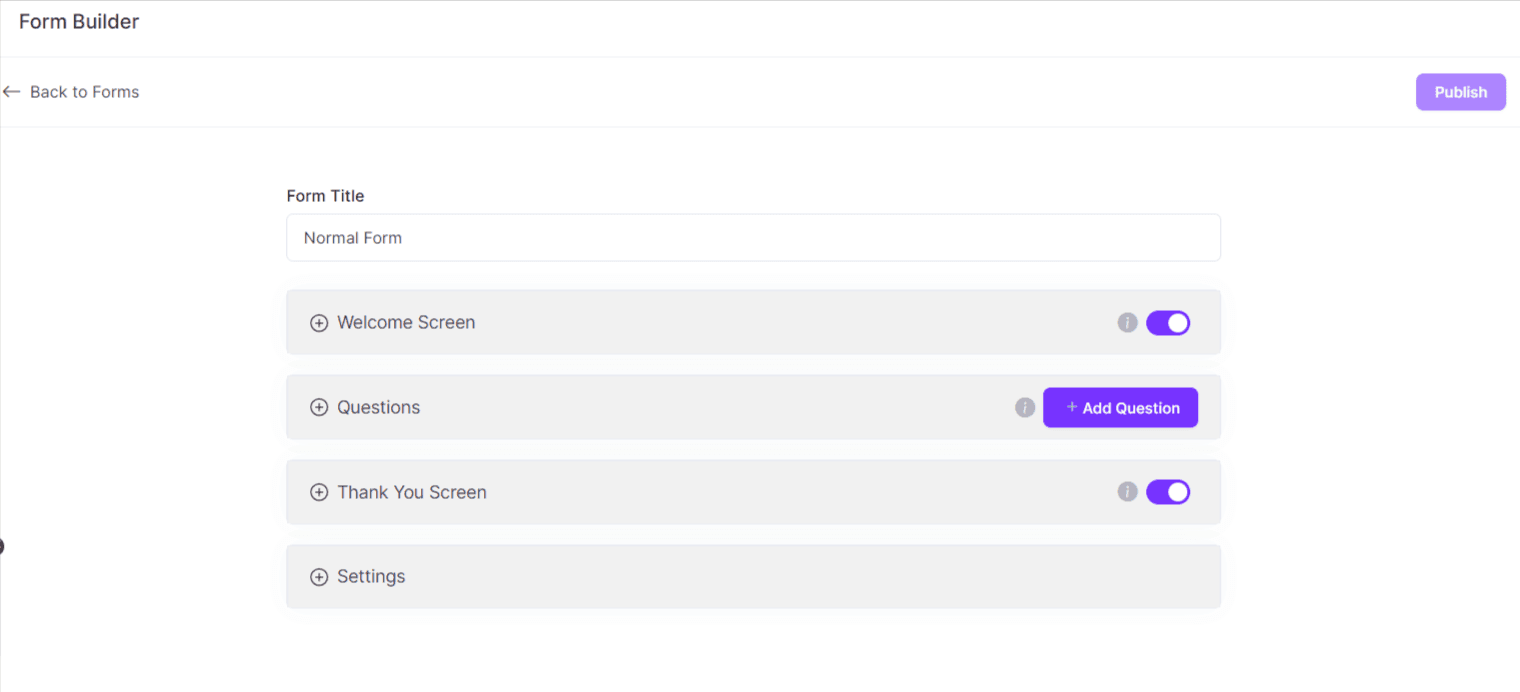
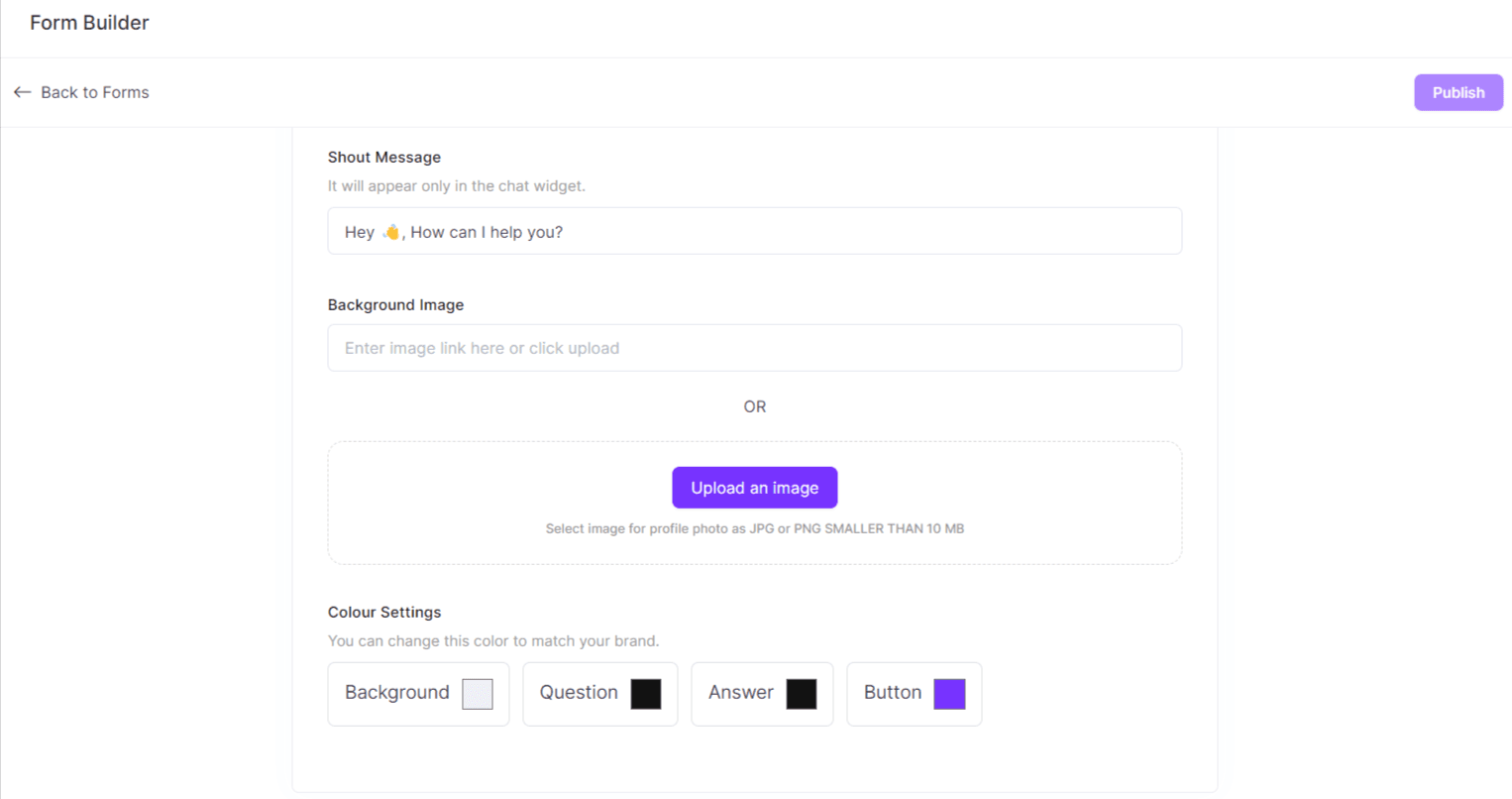
When you know about your prospects' behavior and their needs, it becomes 10x easier to engage them with your business. This way, sales intelligence also enables you to design a customer-centric selling strategy that further helps you in enhancing your sales engagement.
Cross-selling and upselling for the win
Sales intelligence helps you know about your prospects in detail. For instance, if you are aware that it is a common behavior for your prospects to buy a bundle of IVR and toll-free number solutions together, then any time a prospect asks for either of the two, you can try to cross-sell them the other product.
Amazon and Apple are two brands that are acing the game of cross-selling and up-selling. You buy an iPhone, and since you spent such a huge amount on the product, you end up buying AppleCare too, and of course, you will be tempted to buy some accessories as well, so you might end up adding Airpods to your cart. That's it! That's all it takes to cross-sell. Understand your prospect's point of view and offer them an additional product that will improve the performance of the product they intend to purchase. If someone bought a cow, offer them to buy the hay as well to energize the cow.
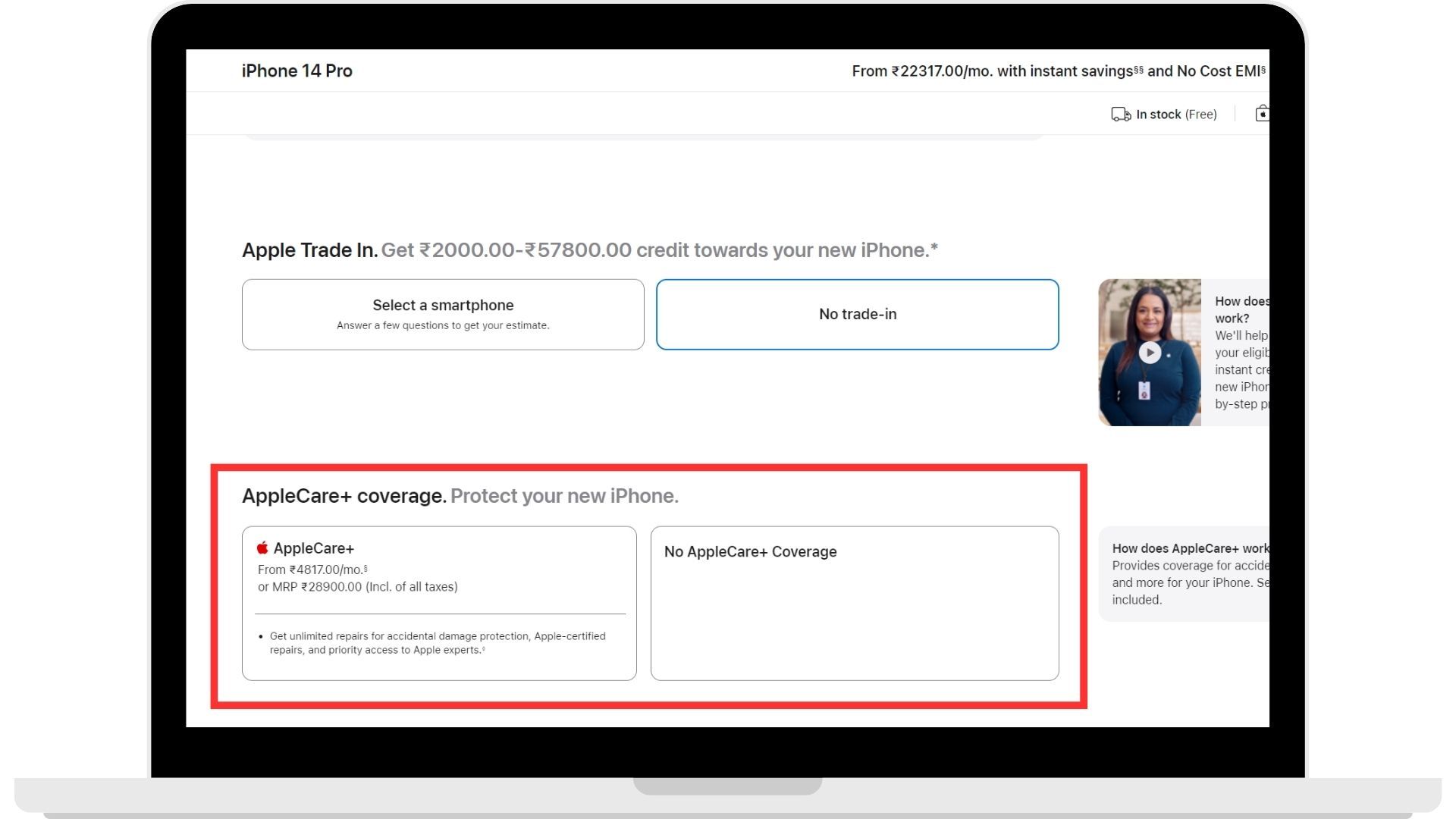
When your customers see you giving them meaningful suggestions, they consider you as a 'caring brand,' which helps in building your reputation, increasing sales engagement, and eventually increasing sales.
Build trust to increase engagement 10X
Trust is the foundation of any successful sales relationship. Sales intelligence lets you gain insights into your prospect's business challenges, recent news, and industry trends. Incorporating this information into your sales conversations demonstrates empathy and understanding, ultimately building trust and rapport. That trust and rapport take the form of sales engagement since when they trust your intentions, your team becomes the primary mode of consultancy for them.
For instance, a sales rep is preparing for a call with a prospect in the manufacturing industry. Using sales intelligence, the rep can gather information on the prospect's recent news, industry trends, and business challenges. During the call, the sales rep references the prospect's recent acquisition and discusses how their product can streamline integration. This targeted conversation demonstrates empathy and understanding, leading to a stronger relationship and increased likelihood of closing the deal.
Exceptional customer service
With sales intelligence, you have access to exclusive information and detailed data about customer and prospect behavior, and that helps you mold your entire sales engagement strategy. When you are able to follow sales engagement best practices, you are able to cater to your customer's needs and thus level up your customer service.
With improved customer service comes more engagement from the customer front. Consider Amazon; why is it one of the top brands in the industry? Consider Microsoft, and how have they been able to make a name for themselves? Consider Trello; what is it that they are doing that makes them the most preferred content management tool? Along with providing a unique product, all these brands are also focused on providing exceptional customer service, and they utilize their sales intel to go above and beyond to fulfill their customers' needs.
When you provide great customer service, you also earn a lot of positive word-of-mouth that further helps you get more customers. In chronological order, you gather sales intel to help you understand prospect behavior and then put it to use to build a comprehensive strategy that gets you sales engagement and sales. Well sounds easy! 🎯
Enrich your existing game plan
You can never have enough customer information with you. More is always less. So you need sales intelligence to always keep getting that information to level up your strategies. Customer expectations keep changing, and your ideal customer keeps evolving as well. So as per that, you will have to keep changing your strategies or mold your sales qualifying questions to find your ideal customer.
Not just from a customer perspective, but you need sales intelligence to stay ahead in the market as well. You need to know what your competitors are doing so you can do that better and get to any prospect before they do.
Smart tools and techniques for sales intelligence
Building a sales engagement strategy with the help of sales intelligence is fine, but how to implement it on a scale where it makes a difference? How can you make sure all your sales representatives are following the most effective outbound sales cadence? Or how can you run outreach campaigns for your prospects on a large scale without outbound sales software?
To implement the benefits of your sales intelligence effectively, you need sales intelligence tools that not only get you desired but also speedy results. Here is how you can leverage sales intelligence tools.
Prospect Identification and Prioritization
Imagine you're on a fishing trip and have to choose between two ponds. One is teeming with fish, while the other is nearly empty. Which one would you choose? Obviously, the one with more fish. Sales intelligence tools, like Zixflow, help you identify potential customers with the highest propensity to buy, ensuring you're always fishing in the right pond.
For instance, an e-commerce company wants to target customers most likely to purchase during their upcoming holiday sale. They can use sales intelligence to analyze demographic information, browsing behavior, and past purchase history to identify high-value prospects. The sales intelligence tool will reveal that customers who spent over $200 in the last sale and visited the website multiple times in the past month are the most likely to purchase. Then, the sales team can prioritize these prospects and create targeted marketing campaigns to reel those big fish.
Account-Based Marketing (ABM)
ABM focuses on targeting specific high-value accounts instead of casting a wide net. Sales intelligence can help you identify key decision-makers within target organizations and personalize your messaging based on their unique pain points and preferences, ensuring a bullseye every time. This technique is gaining traction as an emerging trend for boosting sales engagement.
For instance, a B2B software company is targeting large enterprises in the financial industry. Sales Intelligence tools like LinkedIn Email Finder by Zixflow can help identify key decision-makers within these organizations, such as CTOs and CIOs. Then, the sales team can create personalized marketing materials and outreach strategies to resonate with these decision-makers by gathering insights into their pain points, preferences, and recent business initiatives. For instance, if a target company recently announced a digital transformation project, the sales team can emphasize how their range of software solutions and digital services can support such initiatives.
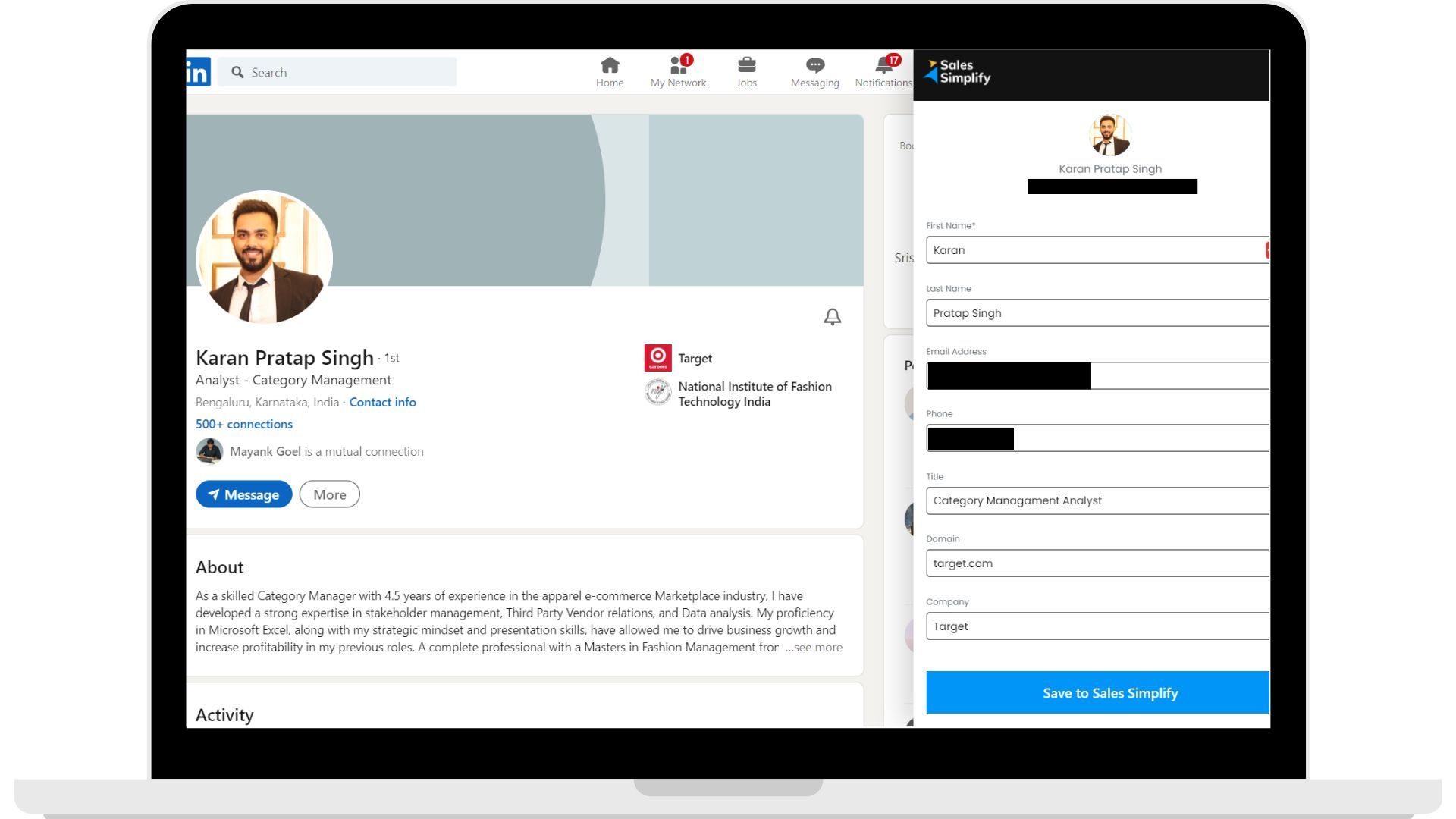
Email personalization & automation
Let's face it; nobody likes to receive generic, impersonal emails. With sales intelligence data, you can create highly personalized email campaigns that resonate with your prospects. You can send emails based on your customer's interaction with your business, and not only that but also automate the entire process of emails from writing to sending. For example, here is a screenshot of how we use Zixflow to send personalized emails with the help of AI Wizard and sales email automation feature:
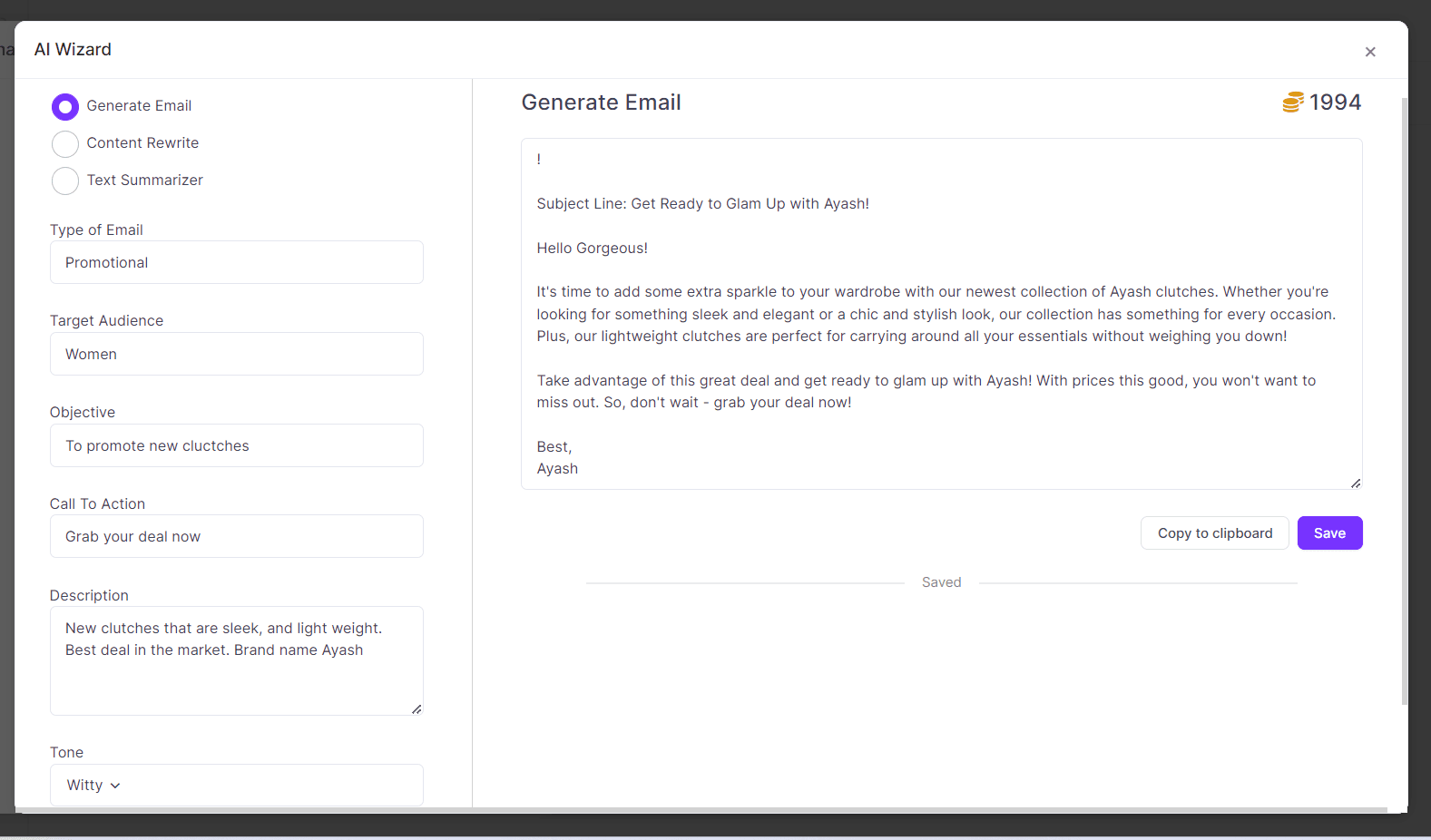
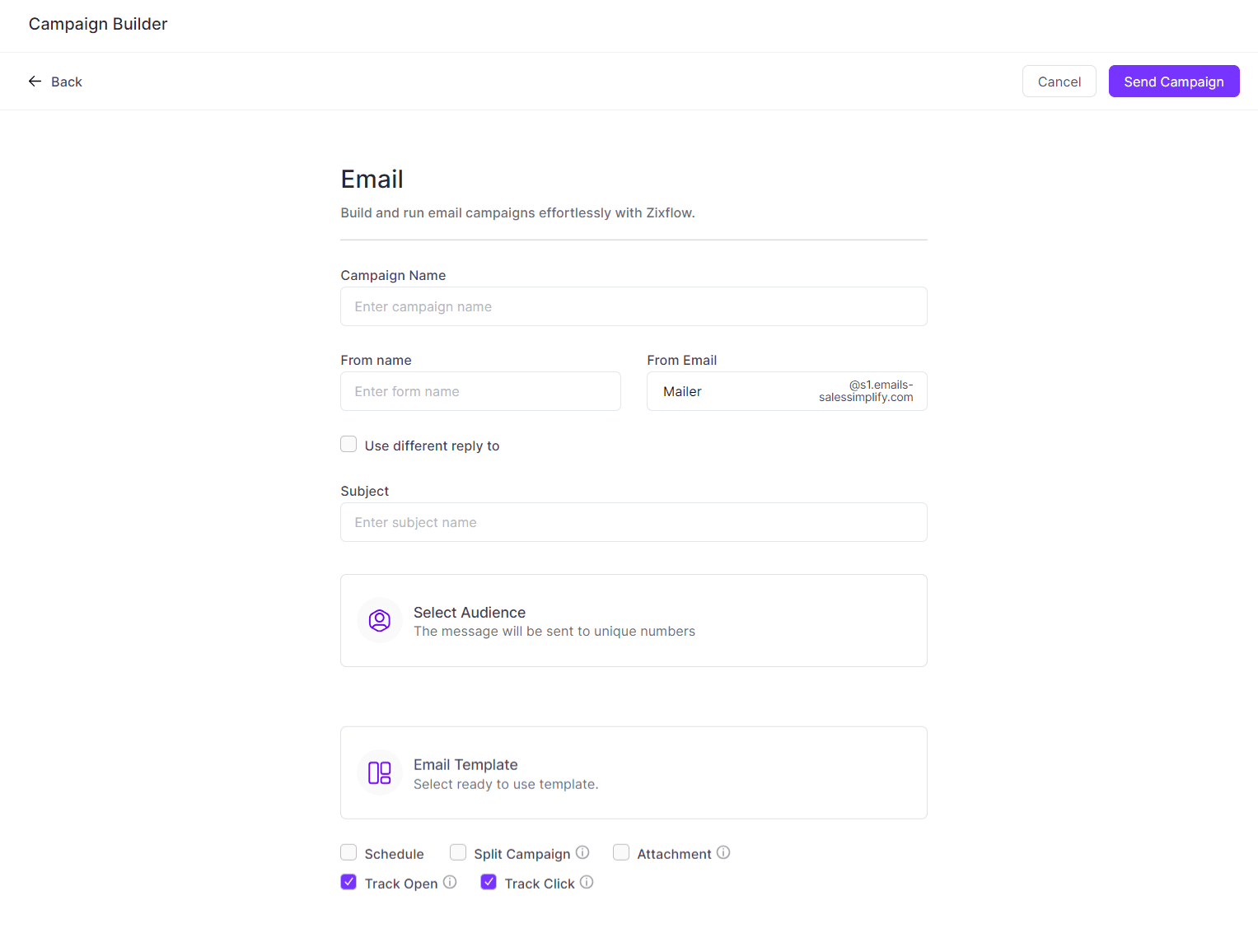
Sales Forecasting
Like a weatherman predicts the weather, sales intelligence tools can help you analyze historical sales data, market trends, and customer behavior to generate accurate sales forecasts enabling you to make better-informed decisions and allocate resources more effectively. For example, here is a screenshot of sales forecasting dashboard in Zixflow:
Unleash your sales superpowers
Leveraging sales intelligence can significantly boost sales engagement and drive revenue growth. You can create customized pipeline stages as per customer preferences, create content that your customers want to see, and finally increase sales by implementing the strategies and utilizing relevant sales intelligence tools.
So, why wait? Harness the power of sales intelligence today and watch your sales soar to new heights! Try Zixflow for free and watch sales intelligence facilitate your growth.
